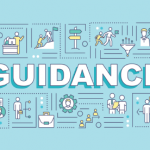In another case, searching the database with the name of an ACR member who was the single author of a review article described as mentioned in documents “demonstrating that medical publishing companies played critical roles in overseeing the development, organization, and manuscript drafting of supplemental issues focused on rofecoxib” yielded no hits. Likewise, a search using the title of the article yielded no hits. While the supplement in which this article appeared may have had industry sponsorship, no evidence is available to suggest a role for Merck in this specific article.
These examples result from searching the database used by Ross et al. for only a small fraction of the authors and articles that they implicated in the JAMA article, which suggests to me that additional individuals may also have been incorrectly identified as being involved in ghostwriting and related practices. The New York Times quoted Steven Ferris, PhD, a New York University psychiatry professor as stating that the allegation that his work was ghostwritten was “simply false.” Presumably, any errors in the study of Ross et al. were inadvertent, and due to a flawed strategy for analysis of the voluminous documentation that was collected for Vioxx litigation. But these examples beg the question: How many of the accusations are true and how many are not?
What Do We Do Now?
Let me be clear about my own views on ghostwriting: it’s an unacceptable practice that has no place in the scientific and medical literature. The same goes for manipulation of data to falsely enhance perceptions of the efficacy and safety of pharmaceuticals. And there is, unfortunately, little doubt that these practices are not unusual. The medical profession has become far too comfortable with “that affable familiar ghost which nightly gulls him with intelligence,” mentioned by Shakespeare in Sonnet 86.
So, given the importance of these issues, surely Ross et al., as well as the JAMA editors who highlighted their article and extended its conclusions, should have understood the necessity to ensure that their facts were entirely correct—100% correct. Their study, amplified by JAMA’s commentary, is not just a general discussion of the prevalence and undesirability of ghostwriting. It also has the effect of seriously compromising the integrity and professionalism of every single one of the authors who was cited, not to mention potentially making each of them the target of a Congressional investigation. Casting a broad net that traps the innocent with the guilty can reasonably be viewed an act of negligence, even recklessness that—just like ghostwriting—has no place in a medical journal. As in Shakespeare’s plays, good intentions aren’t good enough. After encounters with his father’s ghost, Hamlet, in his zeal to achieve vengeance, accidentally murders the wrong person: the innocent, albeit bombastic, courtier Polonius. Hamlet’s tragic error occurs because he fails to exercise enough care to ascertain the identity of his victim, and instead mistakes him for Hamlet’s evil uncle, who had murdered Hamlet’s father, usurped his throne, and married his widow.

